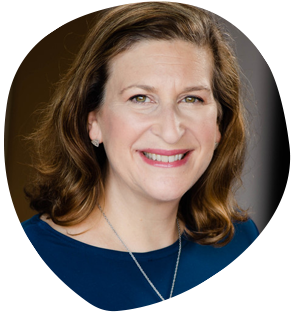When I first moved to Boulder, Colorado, I met a rabbi who shared this question that his daughter asked him when she was 8 years old:
“Abba, when you are asleep, you can wake up, right? So when you are awake, can you wake up even more?”
This idea of “waking up more” has stuck with me over the past 20 years, and has influenced my experience as a business owner and leadership development coach.
When I talk with professionals about their challenges and plans at work, it inevitably bring us to a choice point. Whether the issue is about leading a team, a difficult peer, avoiding burnout, or the need to scale their business, part of my role as a coach is to use that moment of examination and seeking of self mastery to help people discover better options, and to wake up a bit more because of the issue they face. The challenge itself holds the seeds of becoming even more aware and intentional—and through our openness, we change and grow as an ever-more-conscious professional.
Each of us has areas in our lives where we are operating on autopilot, just doing what we have been doing, without being aware of whether or not our actions really align with our vision or values. Sometimes, that is effective and there is no need to look further. But frequently, in my quest to be a more self-aware, I notice opportunities to get more intentional, to turn off the autopilot, and to get back in the driver’s seat.
These are opportunities for me to “wake up more” using work experiences as the catalyst.

Take a moment to think back to a challenge at work this week. Was your response conscious or unconscious? Here are some of the differences:
| Conscious | Unconscious |
|---|---|
| Intentional | Automatic response |
| Aware of choosing | Reactive - not aware of choice |
| On purpose | Default - happens without thinking |
| Aligned with values | Disconnected from values |
Some unconscious behaviors are needed to keep you alive, like breathing, and remembering how to cook, drive or walk. But all of us can also fall into the trap of reacting to a situation without thinking, or getting stuck in the routine of doing things how we always do them, even though the situation around us has changed. What once worked well, may no longer be the best choice. Fortunately, moving from autopilot to intentional choice is always an option.
When you do notice an unconscious or unintentional action, let it serve as an opportunity to further develop your conscious awareness. Take step back and ask yourself, “Is this what I really meant to do?”
In the heat of the moment, emotional triggers cause reactions, and if we are not being careful, we may end up saying or doing things that we don’t really mean, or may regret. It can be hard to control intense emotions and act with a level head, but as you become more and more practiced, this will get easier and easier.
Allowing yourself to become aware of an unconscious action or reaction that doesn’t line up with your values can feel a little jarring. We don’t like to see that we can be the person who is standing in the way of our own growth, hurting other people, or causing problems.
This painful reaction can cause us to resist being more aware and awake, or it can open us, causing us to see things in a new light, and help us wake up more.
Being a conscious professional challenges you to take notice of what’s going on, to see more clearly and accurately in order to create change going forward—inwardly and outwardly. Ultimately, these realizations and choices strengthen the link between your behavior, the values that matter to you, and the impact you create.

As you looking back on a past unconscious behavior, you may have the urge for a “do-over” or feel uncomfortable about what you did or didn’t do. I get it. Brene Brown talks about being hit by a “shame storm” when we feel not worthy… And I can sometimes find myself in an epic shame storm when I realize that I was behaving unconsciously and it didn’t serve me or the people I care about.
While I can’t change whatever happened in the past, I can can change what happens next, and that is where I draw strength, and start to build new options that help me move forward intentionally, with awareness and purpose.
For more important tips for practicing awareness, download a free chapter from my new book, The Conscious Professional. Each chapter of the book has reflection exercises to jump-start your transformation.
The rabbi I met was Reb Zalman, also known as Rabbi Zalman Schachter-Shalomi, one of the founders of the Jewish Renewal movement, a prolific author, and spiritual innovator.
For more information on his remarkable life and achievements, start here.

Jessica Hartung
Jessica Hartung is a partner, coach, and guide for those leveling-up their personal professional leadership, their teams, and their communities to a better future.
Jessica has a passion for inspiring and preparing people to grow from their work to improve their lives. In 1998, she founded Integrated Work, a consulting firm that brings top-notch professional development to mission-driven leaders, while being a learning laboratory for innovative work practices.
Jessica provides self-directed professional development tools to leaders at all levels striving to create positive impact.
